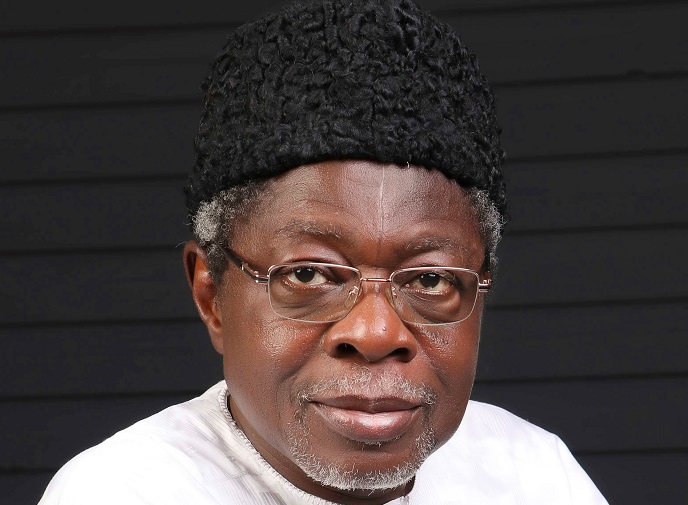
The promotion of peaceful and inclusive societies is the focus of goal number 16 of the Sustainable Development Goals (SDGs). It also broached “access to justice for all and building effective, accountable and inclusive institutions at all levels.”
Strong institutions are necessary to respond effectively to the needs and concerns of nationals and are better placed to hold those in authority accountable.
The former President of the United States of America, Barack Obama, while addressing the Ghanaian Parliament during a courtesy visit to Ghana in 2009, remarked as follows: “No country is going to create wealth if its leaders exploit the economy to enrich themselves, or police can be bought off by drug traffickers. No business wants to invest in a place where the government skims 20 per cent off the top, or the head of the Port Authority is corrupt. No person wants to live in a society where the rule of law gives way to the rule of brutality and bribery. That is not democracy; that is tyranny, and now is the time for it to end. Africa doesn’t need strong men; it needs strong institutions.”
And what did Obama mean by Africa needing strong institutions, rather than strong men? The wisdom of these words is that strong institutions will help deliver democratic dividends in a consistent and just manner.
Obama, having African roots, knows Africa and Africans. In Africa, a leader is like an emperor who straddles over where he is boss. A local government chairperson sees the area as his farm and a Nigerian president has Pharaonic powers courtesy of the constitution.
No one among their staff can tell them what is right. Those staffers fear being discarded and not seen as ‘loyal’ for daring to be candid. They are well aware of what they will lose if that happens. And the emperors, having drunk from the chalice of absolute power, which absolutely corrupts, do not want in their circle those who do not say see him as infallible.
And this is one reason there is rampant corruption everywhere. Anybody at the helm of any ministry, department, or agency is lord of the manor there and does everything according to their whims and caprices.
However, countries with weak institutions that buckle under the leadership of men rarely succeed because of the absence of state institutions that can establish and enforce rules. And because, in the absence of such, you have strong men at the helm, seldom do they subject themselves to the rule of law as the leadership tends to personify the institution. Ego runs the institutions.
There are ways to get it right as a nation. First, our leaders need to rethink their idea of leadership. A leader is to be there to serve and not to lord it over others; to give hope and uplift, not to render hopeless and cast down the people into penury. A leader must be someone ready to lead for the sake of God.
Then there must be justice. I will never tire of hammering it to all who care to listen that Sheikh Usman Dan Fodiyo, who said “The death of a thousand good men is not as tragic as having an unfit man in a position of national leadership,” wrote in his book, Bayan Wujub al-Hijrah alal ibad, that “A kingdom (nation) can endure with unbelief, but it cannot endure with injustice.”
To get justice, we must strengthen our legal and judicial systems. We need to reform our laws; and improve the capacity and independence of our judges and lawyers. This will earn the system more respect and bring back the people’s trust which is being steadily eroded.
And where the courts have adjudicated, we must respect that judgement. This is important for institutions saddled with safeguarding our democracy.
This brings me to the face-off if it can be termed that, between the Independent National Electoral Commission (INEC) and the All Progressives Grand Alliance (APGA).
“The Supreme Court, in a judgement on October 14, 2021, affirmed Chief Edozie Njoku as the national chairman of the party, upholding the decision of an appellate court that recognised him as such.
However, INEC and its chairman, Prof Mahmood Yakubu, have not accepted the judgement of the apex court as it keeps hobnobbing with the faction of the party not recognised by the courts of competent jurisdiction.
If a state institution like INEC, or any other for that matter, refuses to obey court orders, what will become of the nation?
We have had instances in which the government and its institutions showed disdain for court judgements. The resultant effect of such is that the citizens become less law-abiding and less respectful of law enforcers, as well as less fearful of punishment for breaking the law.
The danger is that such escalate in proportion that the justice system and punitive facilities get overwhelmed. The rule of law is trampled upon if those running institutions have their way, and this leads to a bleak future.
To show how strong institutions and the legal system are elsewhere, read this:
On July 3, 2019, a federal appeals court denied President Donald Trump’s border attempt to construct a wall between the United States and Mexico using funds unauthorised by Congress.
The ruling upheld two earlier district court orders that together permanently blocked the administration from building wall sections along the southern border in New Mexico, Arizona and California, using $2.5 billion in diverted military funds.
The lawsuit, brought by the American Civil Liberties Union (ACLU) on behalf of the Sierra Club and the Southern Border Communities Coalition (SBCC), challenged the president’s abuse of emergency powers to secure border wall funds Congress denied.
And that was how it stood, with the president and all institutions concerned with that matter obeying the two lower courts’ orders, until 31 July 2020, when in a 5-4 decision, the US Supreme Court allowed the construction to continue.
Can we have such a scenario in Nigeria?
–
Hassan Gimba is the Publisher and Editor-in-Chief of Neptune Prime.
Related
You may be interested

2024 CHANQ: History Not Kind To Us Against Ghana –Ogunmodede
Webby - December 24, 2024Home-based Super Eagles coach Daniel Ogunmodede says history has not been good to Nigeria when they face rivals Ghana.The home-based…

Ex-Chelsea Star Oscar Returns To Boyhood Club Sao Paulo
Webby - December 24, 2024Former Chelsea midfielder Oscar is returning to his Brazilian boyhood club Sao Paulo after 14 years, which included a long…

‘I’m Incredibly Proud’– Arokodare Talks Up Genk’s Unbeaten Home Streak
Webby - December 23, 2024Tolu Arokodare is full of excitement followingGenk’s historic victory over Anderlecht, reports Completesports.com.Sunday’s win at the Cegeka Arena was the…


















![American Pastor, David Wilson Seen Eating The Box Of Woman Who Isn’t His Wife [Video]](https://onlinenigeria.com/wp-content/uploads/2019/10/american-pastor-david-wilson-seen-eating-the-box-of-woman-who-isnt-his-wife-video-150x150.jpg)








